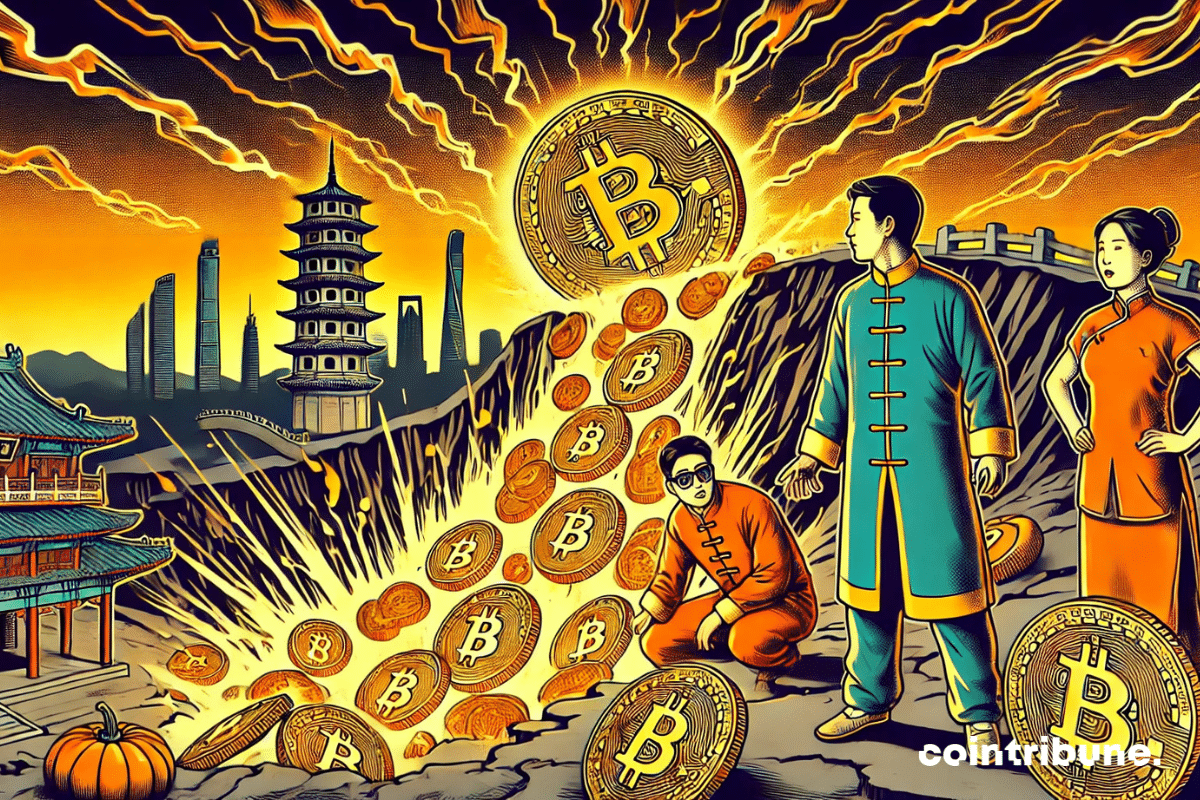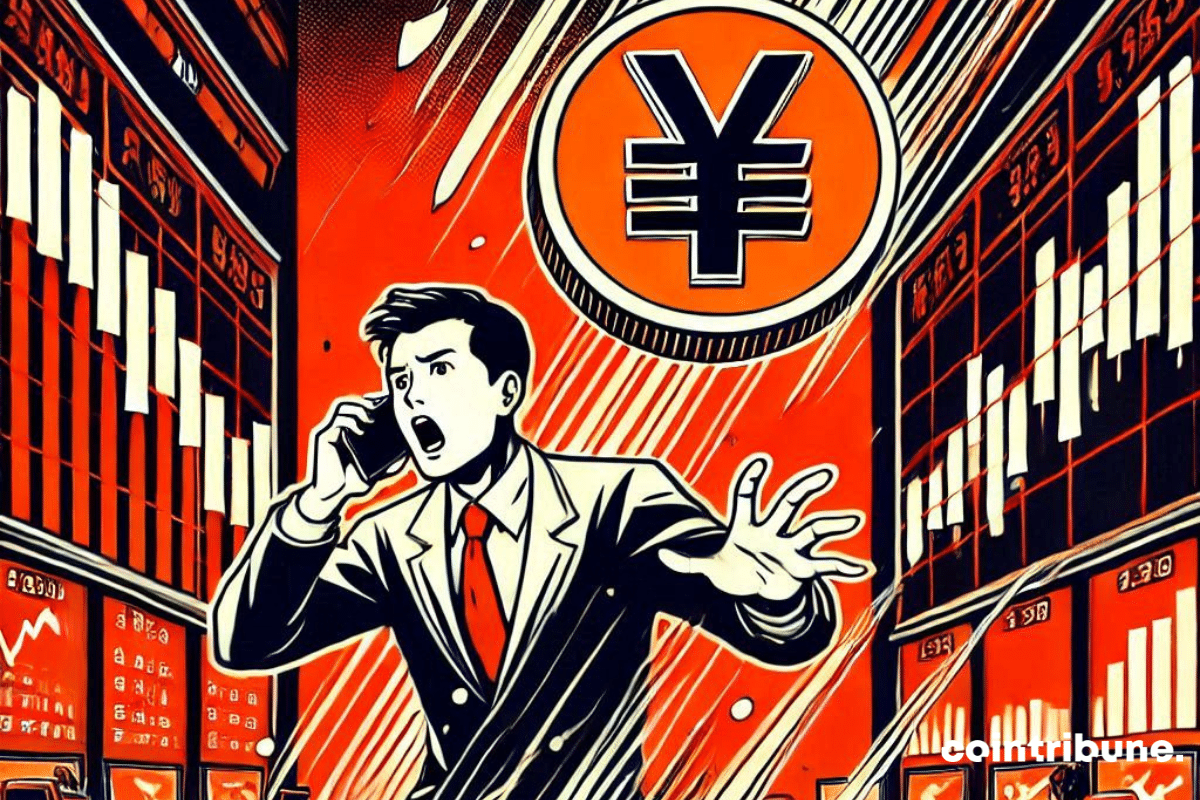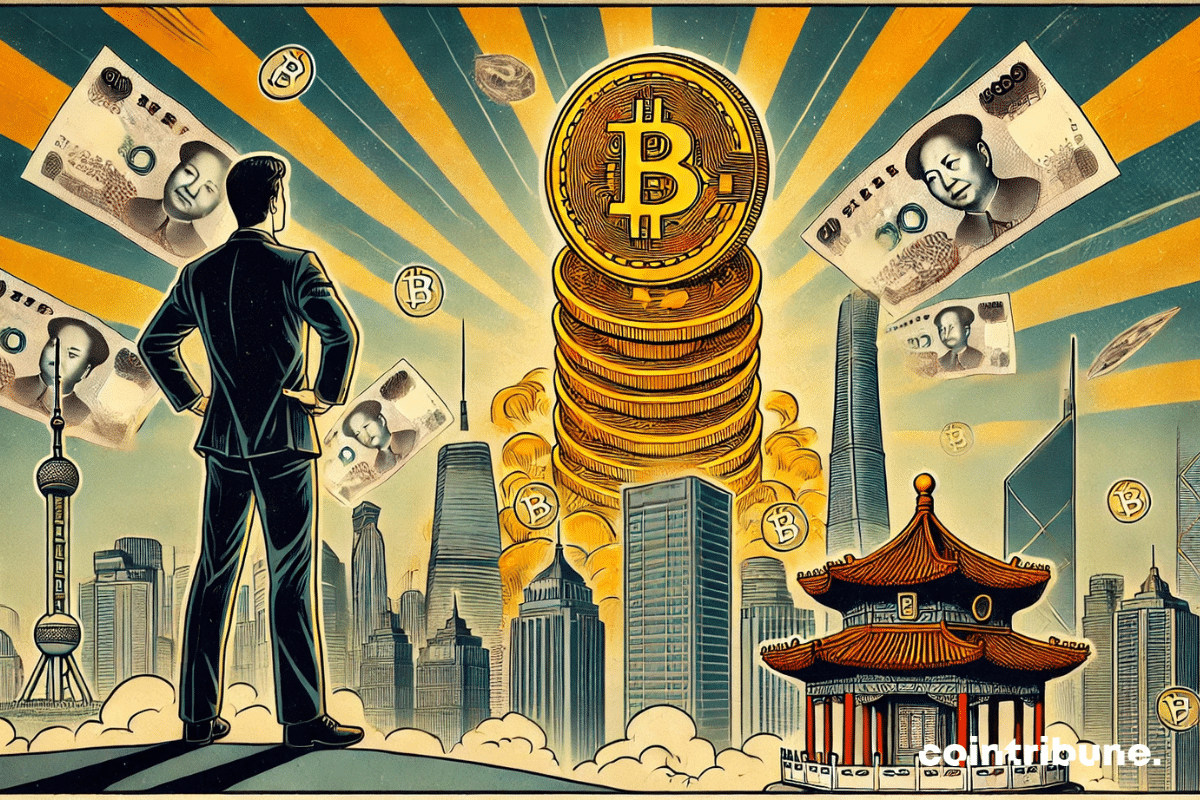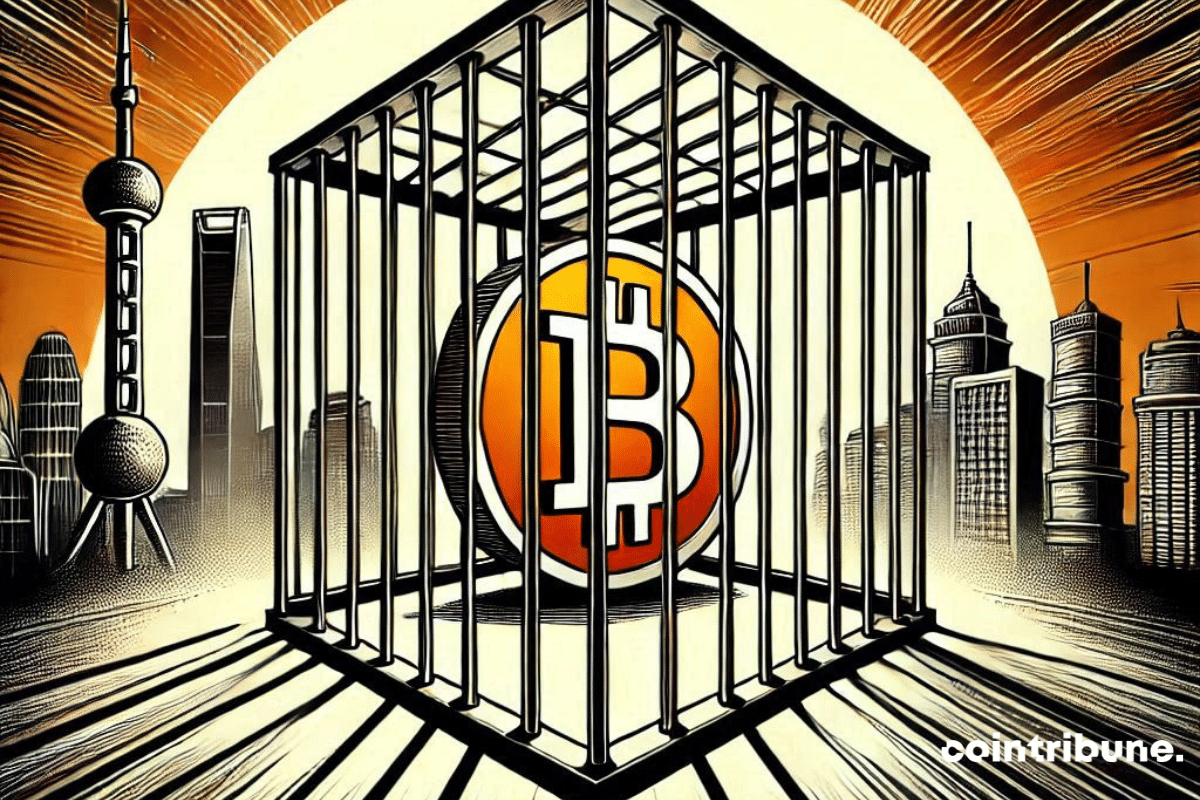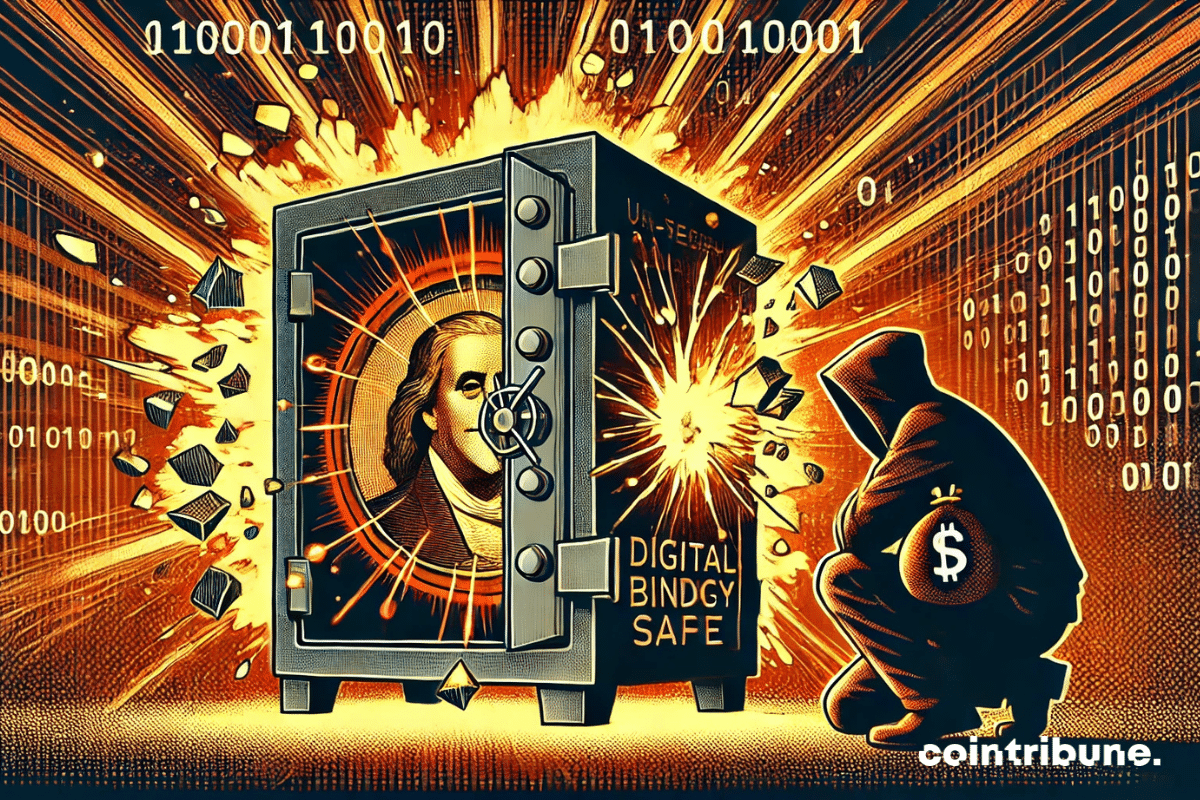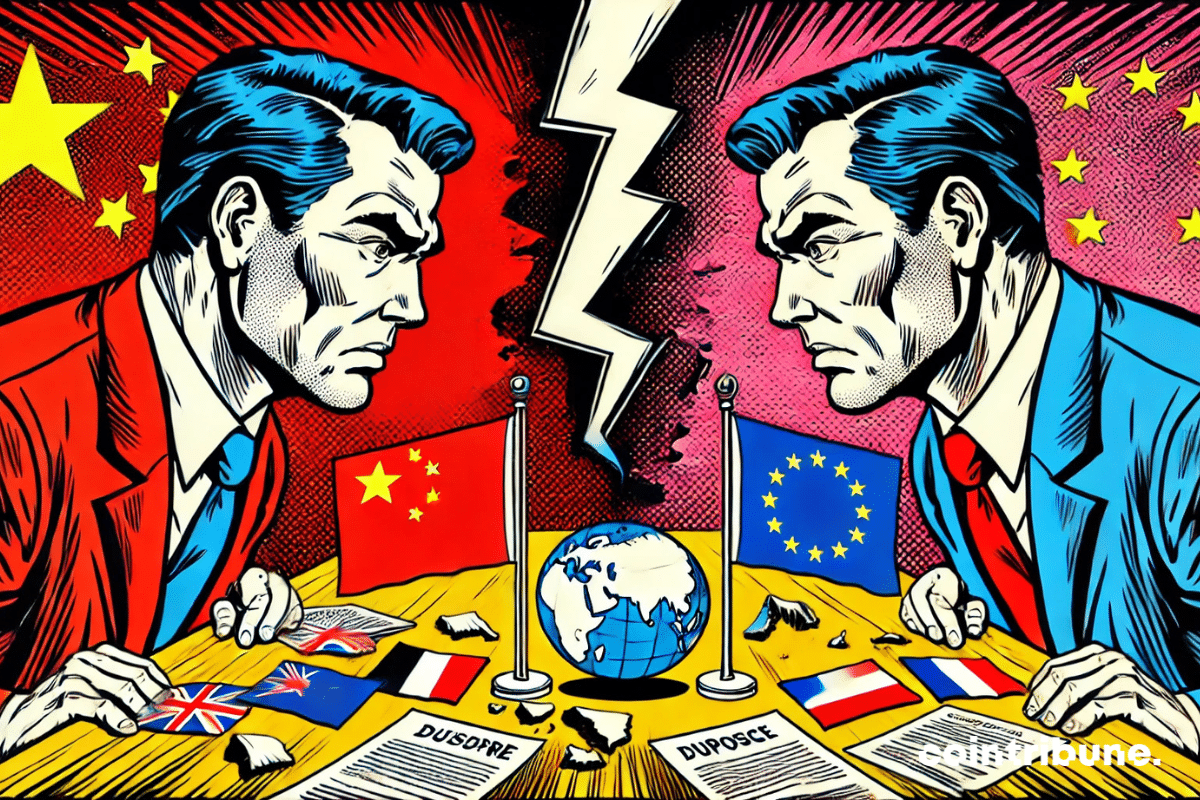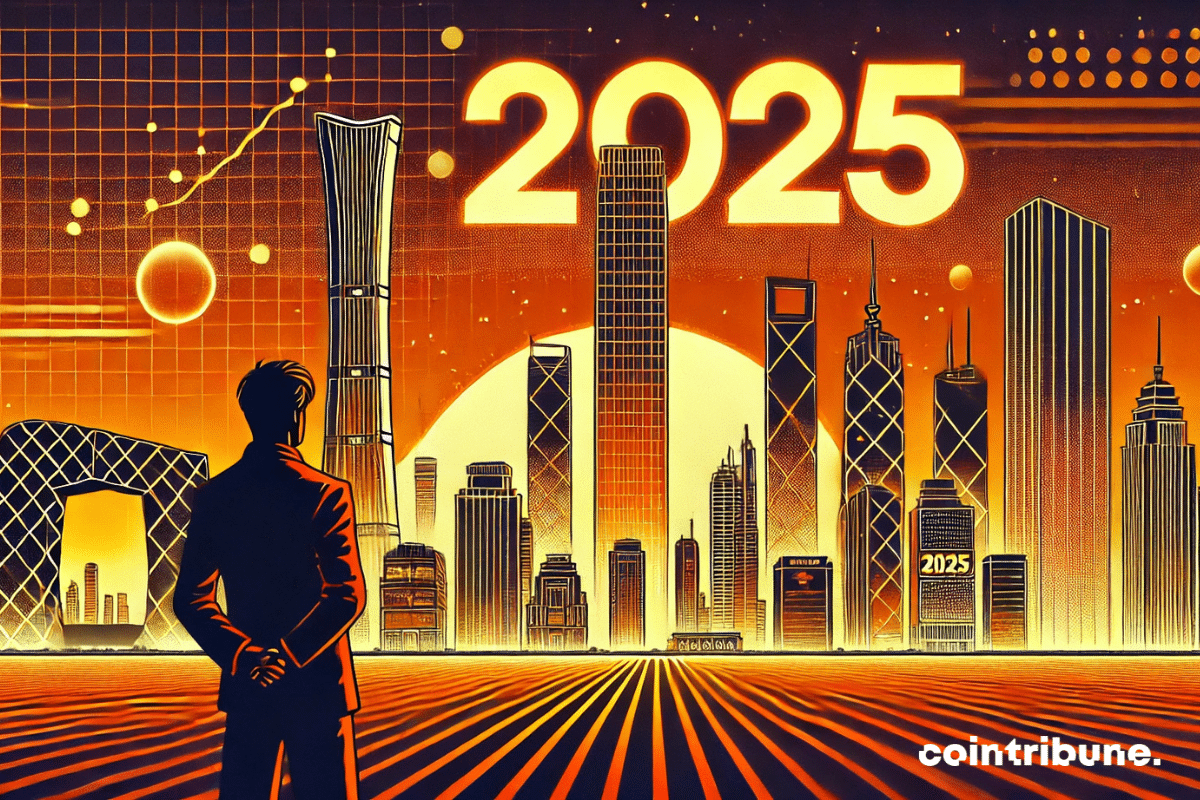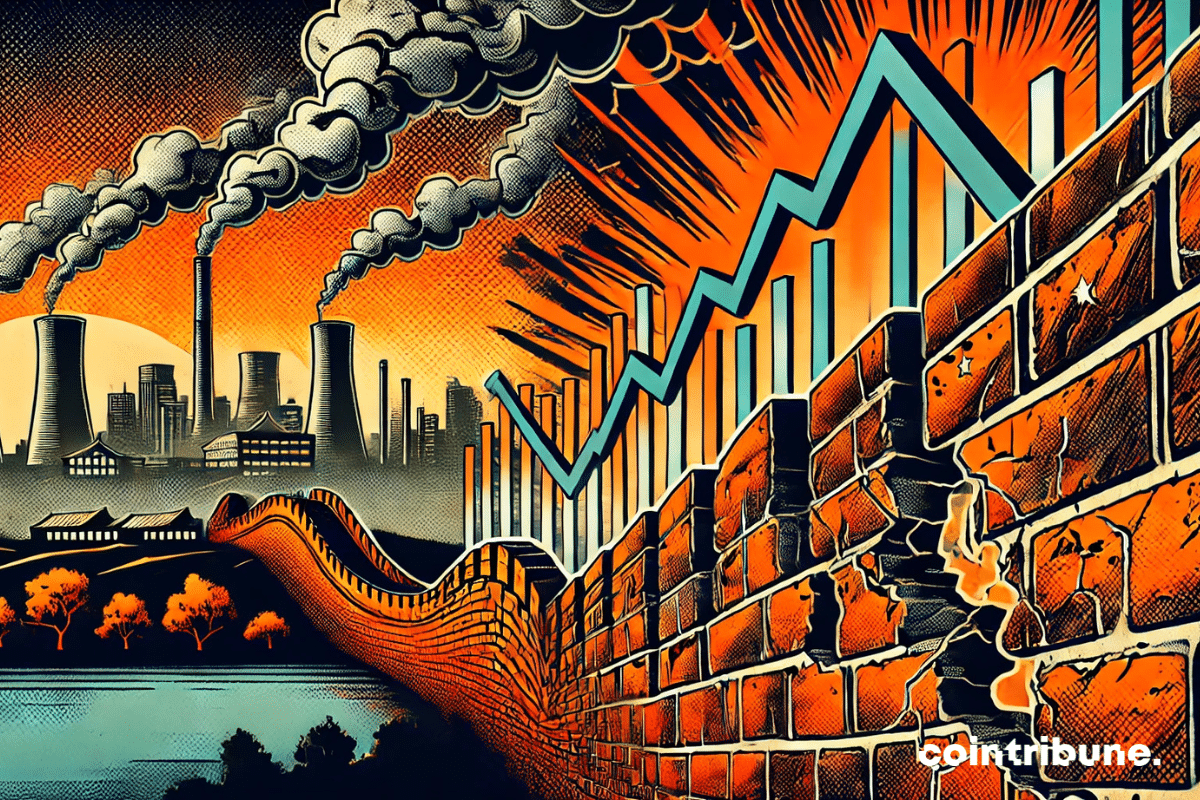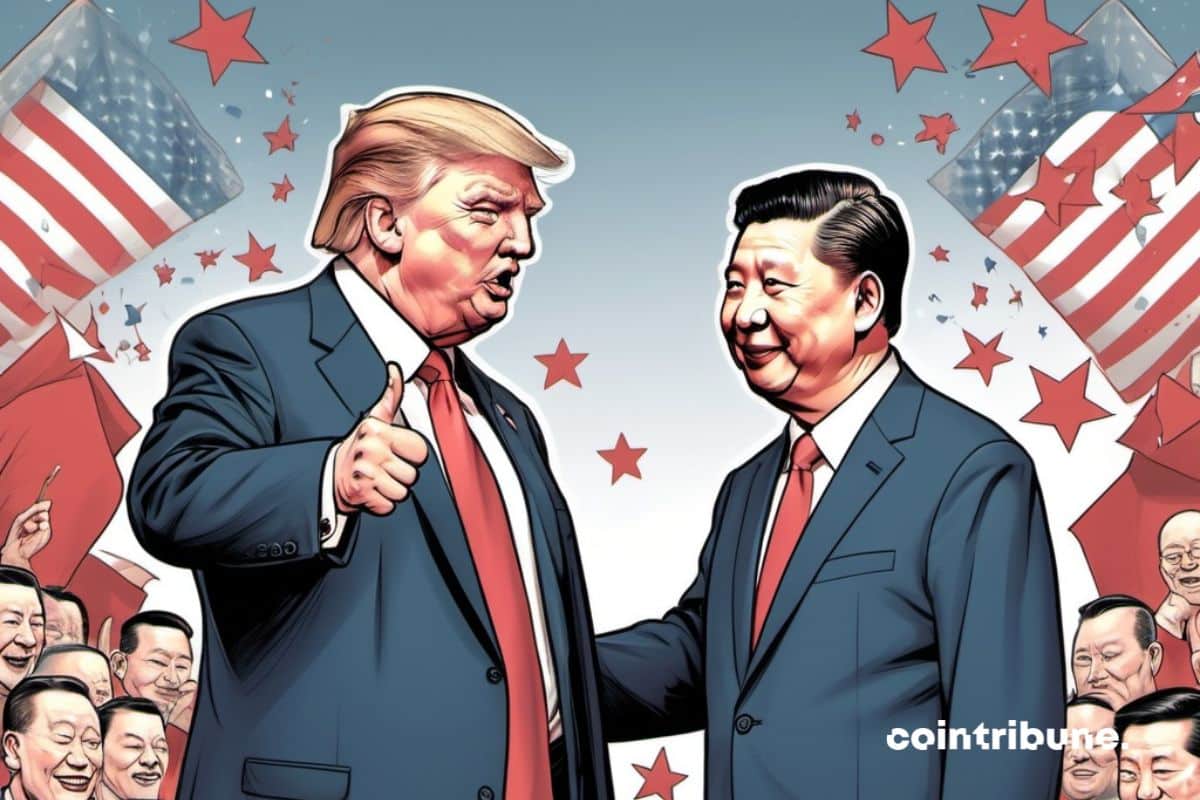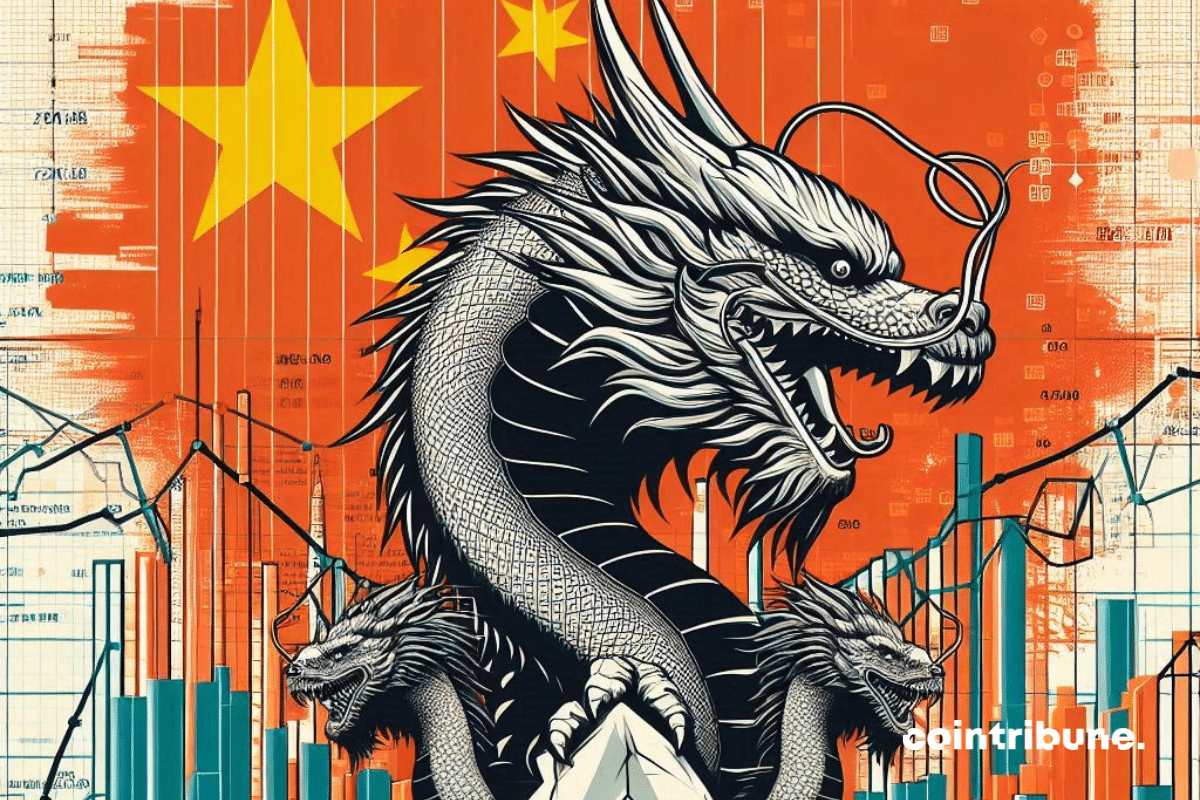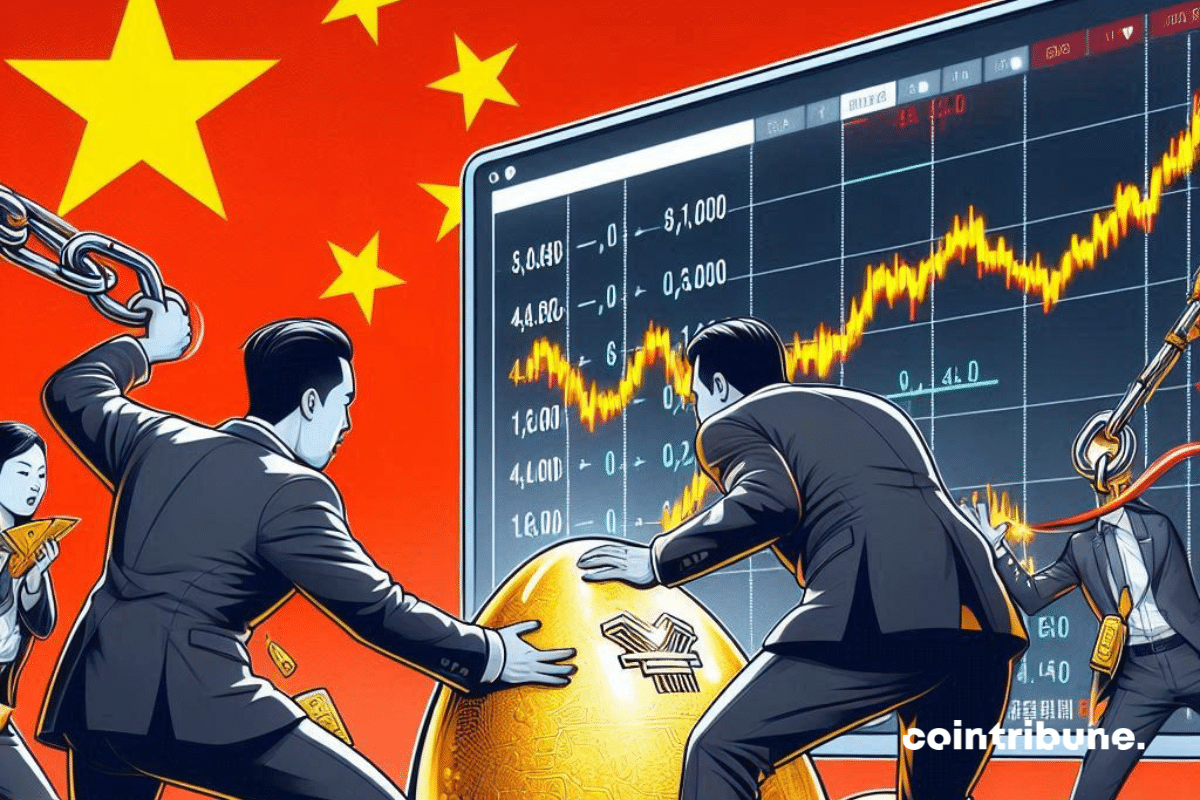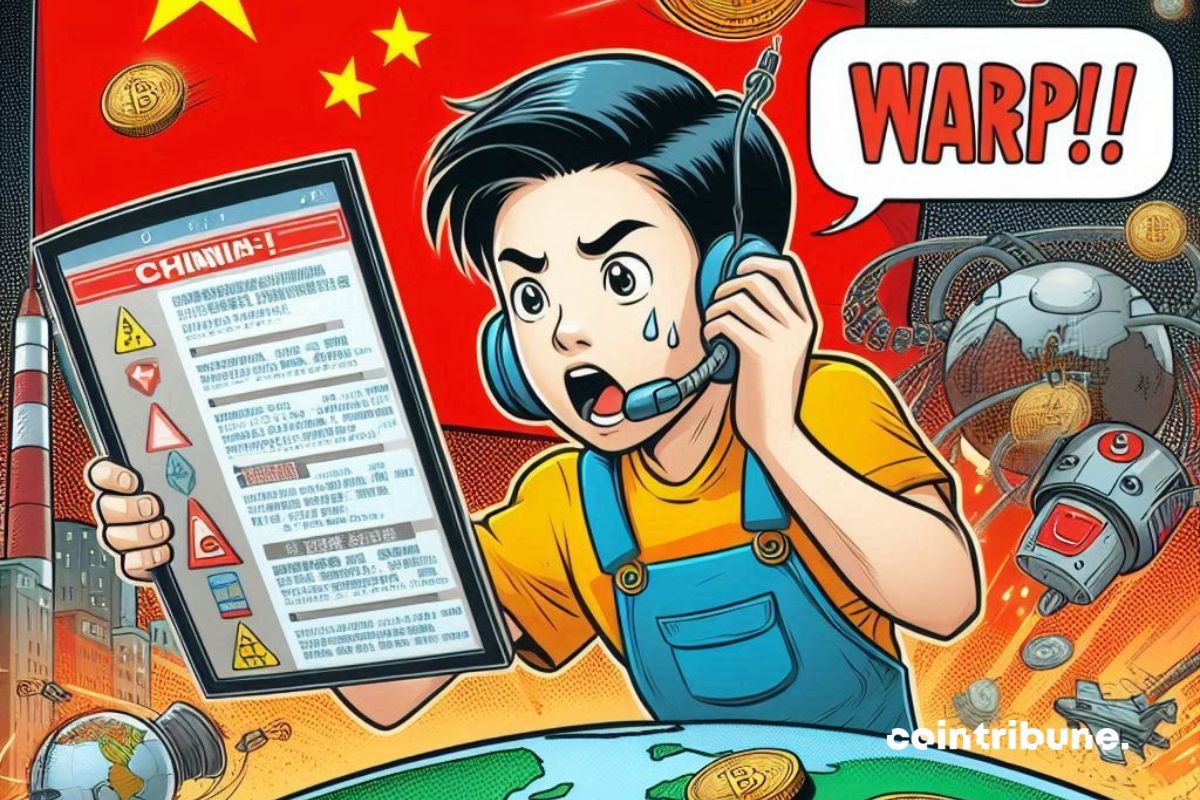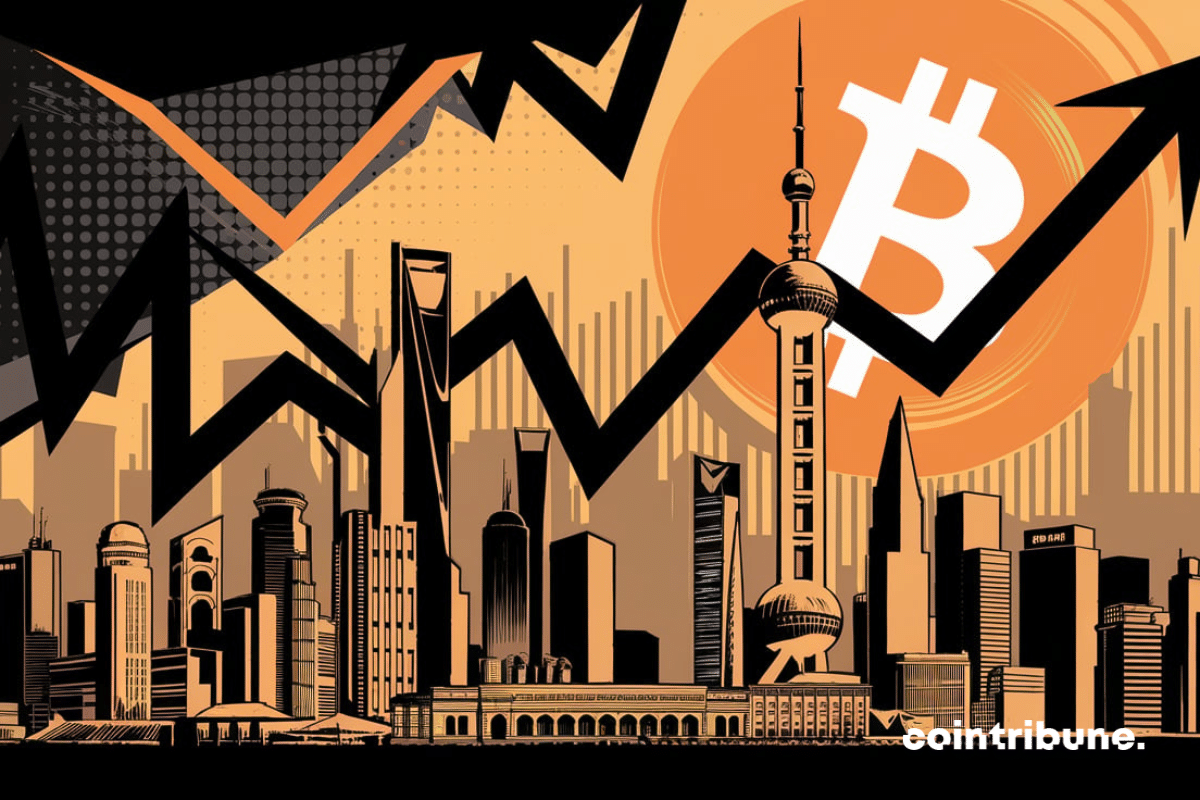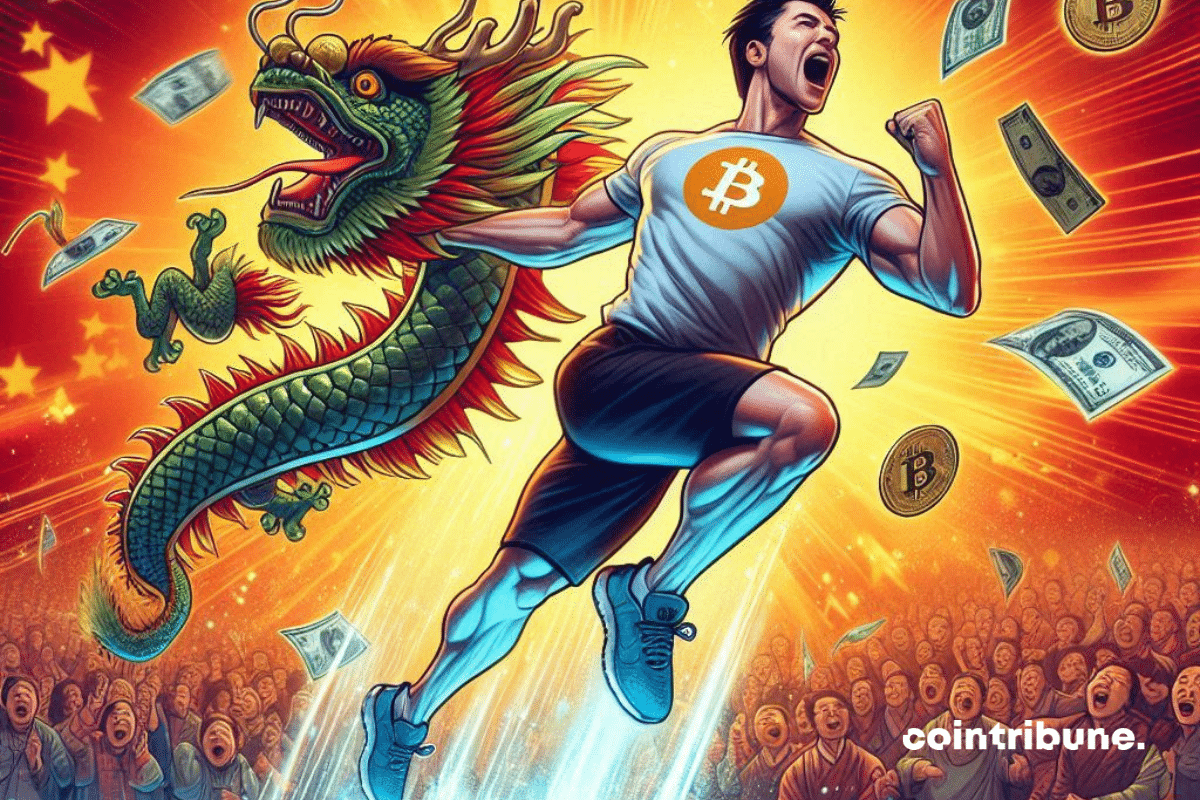While Google drowns AI in a rain of dollars, a small Chinese genius tinkers in his garage and shakes Silicon Valley. Butterfly effect or storm to come?
China
Government decisions regarding cryptocurrencies often have a major impact on the markets, but the scale of China's recent action represents a significant turning point. Beijing has sold 194,000 bitcoins that were confiscated in 2019 during the dismantling of the PlusToken network, one of the largest Ponzi schemes in crypto history. Valued at nearly $19.7 billion, this massive liquidation raises questions about its economic implications and illustrates the growing complexity of the relationship between states and cryptocurrencies. While Bitcoin continues to establish itself as a global store of value, this action by China highlights the strategic role that governments can play in the evolution of this rapidly changing ecosystem.
The dance stops for American TikTokers. Between Chinese threats and political pirouettes, TikTok is stretching itself thin. Trump promises, but ByteDance resists. The suspense continues.
Semiconductors have become an essential pillar of the global economy and technological security. In this context, China announced an unprecedented investment of 37 billion euros to accelerate its technological autonomy, which has so far been hindered by the dominance of Europe and the United States. This strategic sector, embodied by players such as ASML, the world leader in photolithography equipment, is now at the heart of fierce competition. Beijing is not only looking to bridge its gap but to redefine the balance of power with the aim of achieving complete independence. This initiative could reshape the contours of global innovation and intensify tensions in an already high-pressure market.
The Chinese economy is wavering between stagnation and decline, revealing lasting structural flaws. In December, the consumer price index only increased by 0.1% year-on-year, confirming intensifying deflationary pressure despite the government's repeated attempts to revive growth. The drop in food prices (-0.5%) and consumer goods (-0.2%) illustrates the lack of dynamism in domestic demand, as households remain cautious and businesses hesitate to invest. Thus, the real estate crisis, coupled with the ineffectiveness of previous stimulus measures, fuels uncertainties. This slowdown goes beyond a cyclical phase. It calls into question the resilience of the Chinese economic model and its short-term outlook.
The yuan stumbles, the Middle Kingdom sways. The shadow of Trump, armed with taxes, looms and revives old economic demons.
Financial markets are on the brink of a new cycle of monetary easing, marked by strategic decisions from major central banks. Following the American Federal Reserve, which began reducing its key interest rates last September, it is now the People's Bank of China (PBOC) that is preparing to take the lead. Beijing plans to lower its interest rates further to stimulate the economy and counter the heightened deflationary pressure on the yuan, a phenomenon that worries Chinese authorities and weighs on investor confidence. In light of this situation, Arthur Hayes, co-founder of BitMEX and macroeconomic analyst, anticipates a chain reaction in the financial markets. He asserts that the combination of a looser monetary policy in China and a favorable environment in the United States will enhance the appeal of alternative assets, particularly bitcoin and cryptocurrencies. According to him, this injection of liquidity, coupled with a reorientation of institutional capital, could trigger a massive rally in the cryptocurrency market during the year 2025.
In 2025, China continues to demonstrate its resilience under international economic pressures, particularly those exerted by the future Trump administration. Despite attempts by the new American president to hinder China's economic rise, it persists in its openness, marking a significant victory in the war between the two superpowers.
Crypto and strained borders: Beijing strengthens its nets. Tracked identities, scrutinized funds, banks become guardians of a game now locked down.
The digital world has become the new battleground for international powers, where each attack can have profound and lasting repercussions. Recently, a major cyberattack struck the systems of the U.S. Treasury, revealing the vulnerability of the technological infrastructures of a state renowned for its defensive capabilities. This incident occurs in the context of intense rivalry between the United States and China, as Washington accuses presumed hackers backed by Beijing of being behind the intrusion. For its part, China firmly rejects these accusations, labeling them as unfounded and denouncing a smear campaign orchestrated by U.S. authorities. More than just a mere digital incident, this case sheds light on the growing geopolitical tensions around cybersecurity and the difficulty of identifying those responsible in an increasingly interconnected world.
China, long seen as the unwavering engine of the global economy, is currently undergoing a major crisis. Years of double-digit growth, which symbolized its rapid ascent, have given way to a period of deep economic uncertainties. The fragility of its economic model, primarily based on investment and exports, is becoming increasingly evident. Issues such as the rise of public and private debts, the collapse of the real estate sector, and the emergence of the specter of deflation are exacerbating internal economic tensions. These dysfunctions raise a fundamental question: after decades of development often described as miraculous, can the Middle Kingdom still sustain its role as a pillar of global growth?
Global trade is going through a period marked by increasing tensions, where diplomacy and economy intertwine in strategic rivalries. Indeed, China's opening of an anti-dumping investigation into European cognac imports signals a new front in the trade conflict with the European Union. This move, perceived as a direct response to European accusations against Chinese subsidies for electric vehicles, reflects an escalation of economic retaliations between two major powers. Such a case goes beyond a mere trade dispute. It raises fundamental questions about the balance of international exchanges and the role of institutions like the World Trade Organization in arbitrating these disputes in an increasingly complex rivalry context.
China is at a pivotal economic turning point. As the combined effects of weak consumption, an intensified real estate crisis, and high unemployment hinder its development, Beijing has just announced an ambitious budget policy for 2025. The stated objective is clear: to stimulate domestic demand and stabilize an economy under significant pressure. To achieve these ambitions, the government plans a significant increase in public spending, coupled with a revision of its fiscal priorities. These measures, detailed during a national conference, reflect a firm commitment to support local communities, expand social benefits, and strengthen resources for struggling businesses. Such a strategy, centered around innovation and strategic technologies, also aims to revitalize trade exchanges in order to adapt debt rules. With this comprehensive approach, Beijing intends to lay the groundwork for more resilient economic growth and to address the structural challenges that hinder its trajectory.
All eyes are on Beijing, where a major conference is taking place that could redefine China's economic direction until 2025. As the world's second-largest economy faces a lasting real estate crisis, weakened domestic consumption, and renewed trade tensions with the United States, this annual meeting takes on critical importance. At a time when the global economic balance remains precarious, the decisions made here will have repercussions far beyond China's borders.
Recently, the United States announced new sanctions aimed at restricting the export of semiconductor technologies to China. These measures are intended to hinder China's ability to acquire and produce advanced technologies necessary for its military modernization. China is reacting violently!
Elon Musk on the Chinese menu: China launches its Starship clone to occupy the Moon before the next pandemic!
After Donald Trump's victory in the 2024 presidential elections, China's President Xi Jinping congratulated Trump and called for cooperation between the two nations. However, Beijing warns of the risks of a large-scale war that would benefit no one!
In a new escalation of international trade tensions, China has officially filed a complaint against the European Union with the World Trade Organization (WTO). This action follows the EU's decision to impose significant tariffs, ranging from 8% to 35%, on electric vehicles imported from China. According to the European Union, these taxes aim to correct what is deemed unfair competition due to Chinese state subsidies. In response to this measure, China retaliates and denounces an infringement on free trade principles. This conflict arises as both economic powers attempt to position themselves as global leaders in ecological transition and technological innovation.
Trump or not, the Chinese are working to save the economic structure... with billions flowing without brakes!
Zhang Yiming becomes the richest man in China in 2024 with a fortune of 50 billion dollars thanks to TikTok.
In a global context marked by economic uncertainties, China is facing unprecedented challenges to maintain its growth. Indeed, for several months, the Asian giant, the world's second-largest economy, has been trying to break the deadlock, particularly through the revival of a deeply crisis-hit real estate sector. The Chinese government has just announced a new series of ambitious measures to stimulate its economy, with particular focus on the real estate market. These initiatives are crucial for China but also for the global economy, given the weight of the Middle Kingdom in trade exchanges and financial stability.
The Taiwan Strait is once again boiling, and tensions between China and Taiwan are reaching a critical threshold. At the beginning of this week, Beijing intensified its show of military force by deploying fighter jets and warships all around the island, in what is described as a direct warning to Taiwanese "separatists." This surge in tension comes in a context where relations between Beijing and Taipei have continued to deteriorate since Lai Ching-te came to power in 2024, raising fears of an escalation with unpredictable consequences.
Discover China's new economic measures and why they leave investors skeptical about the real estate crisis.
Chinese Commerce Minister Wang Wentao recently expressed his "serious concerns" to his American counterpart Gina Raimondo, amid rising tensions that threaten the world's economic balance.
More and more voices are being raised in favor of Quantitative Easing in China. An analyst from Goldman Sachs.
The escalation of trade tensions between the European Union and China regarding tariffs on electric vehicles threatens to shake the global economy. While Brussels has voted in favor of these measures, Beijing is preparing its response, casting a shadow of targeted reprisals over the European countries most supportive of this decision.
As Chinese stocks soar, Tether declines. It's not easy to play both sides at once!
Discover the risks of cryptocurrencies for global financial stability and China's concerns regarding Bitcoin ETFs.
After the ECB and the Fed, it's the turn of the Chinese central bank to significantly ease its monetary policy. What impact will it have on the stock market and Bitcoin?
The recent announcement of China's massive economic stimulus plan could propel Bitcoin's price to new historical highs. As Beijing injects colossal liquidity into its economy, analysts anticipate a significant impact on the crypto market, with BTC at the forefront.

